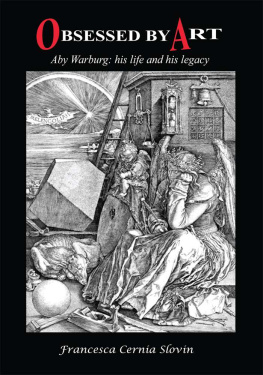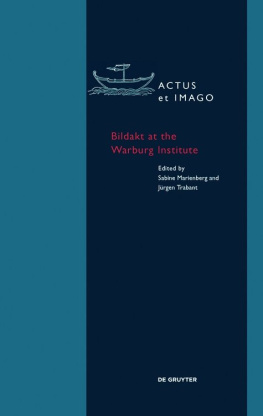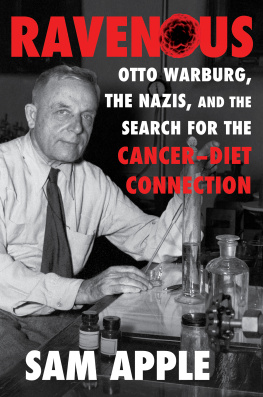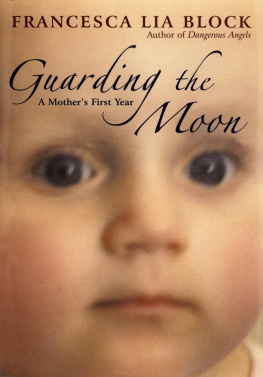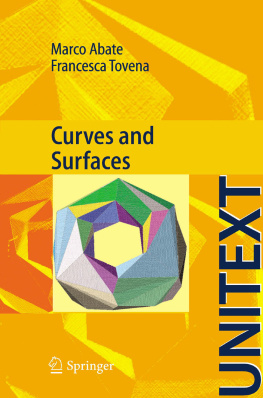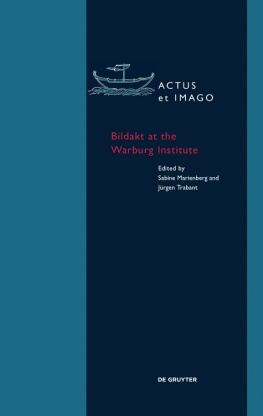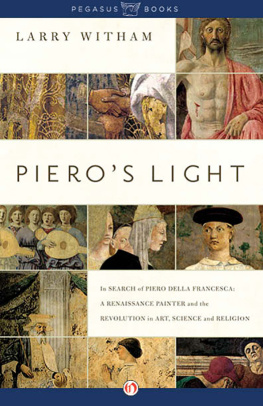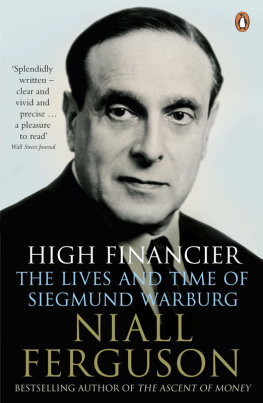Francesca Cernia Slovin - Obsessed by Art: Aby Warburg: His Life and His Legacy
Here you can read online Francesca Cernia Slovin - Obsessed by Art: Aby Warburg: His Life and His Legacy full text of the book (entire story) in english for free. Download pdf and epub, get meaning, cover and reviews about this ebook. year: 2006, publisher: Xlibris, Corp., genre: Detective and thriller. Description of the work, (preface) as well as reviews are available. Best literature library LitArk.com created for fans of good reading and offers a wide selection of genres:
Romance novel
Science fiction
Adventure
Detective
Science
History
Home and family
Prose
Art
Politics
Computer
Non-fiction
Religion
Business
Children
Humor
Choose a favorite category and find really read worthwhile books. Enjoy immersion in the world of imagination, feel the emotions of the characters or learn something new for yourself, make an fascinating discovery.
- Book:Obsessed by Art: Aby Warburg: His Life and His Legacy
- Author:
- Publisher:Xlibris, Corp.
- Genre:
- Year:2006
- Rating:4 / 5
- Favourites:Add to favourites
- Your mark:
- 80
- 1
- 2
- 3
- 4
- 5
Obsessed by Art: Aby Warburg: His Life and His Legacy: summary, description and annotation
We offer to read an annotation, description, summary or preface (depends on what the author of the book "Obsessed by Art: Aby Warburg: His Life and His Legacy" wrote himself). If you haven't found the necessary information about the book — write in the comments, we will try to find it.
Obsessed by Art: Aby Warburg: His Life and His Legacy — read online for free the complete book (whole text) full work
Below is the text of the book, divided by pages. System saving the place of the last page read, allows you to conveniently read the book "Obsessed by Art: Aby Warburg: His Life and His Legacy" online for free, without having to search again every time where you left off. Put a bookmark, and you can go to the page where you finished reading at any time.
Font size:
Interval:
Bookmark:
O BSESSED BY A RT
Aby Warburg:
His Life and His Legacy
Francesca Cernia Slovin
Winner of the 1996 Premio Selezione Comisso
Copyright 2006 by Francesca Cernia Slovin.
Translated from the Italian by Steven Sartarelli
Library of Congress Control Number: 2006909300 ISBN 10: Hardcover 1-4257-3916-4 Softcover 1-4257-3915-6 ISBN 13: Hardcover 978-1-4257-3916-4 Softcover 978-1-4257-3915-7 ISBN: ebook 978-1-4691-0681-6All rights reserved. No part of this book may be reproduced or transmitted in any form or by any means, electronic or mechanical, including photocopying, recording, or by any information storage and retrieval system, without permission in writing from the copyright owner.
This book was printed in the United States of America.
To order additional copies of this book, contact:
Xlibris Corporation
1-888-795-4274
www.Xlibris.com
35805
C ONTENTS
kreuzlingen, switzerland, april 23, 1924
Letting the pen drop onto the sheet of blotting-paper, he propped his elbows on the cramped arms of his chair and read slowly, in a soft voice:
The annihilation of the sense of distance threatens to plunge the planet into chaos. The shrinking of space and time through modern means of communication has done grave damage to the human mind; nevertheless, myths and symbols, by re-establishing an area for reflection, a pause for contemplation, will restore the individual to his proper place in the history of civilization and will continue to stand as the restraints of conscience of which man is still greatly in need.
Thus concluded the lecture on the Serpent Ritual, which he was to give the following day to the community of patients at Kreuzlingen hospital, which had been his home now for more than six years. He had rewritten those closing lines at the bottom of the page, in keeping with his custom of jotting notes and disorderly variants next to every sentence. That unsteady, unpunctuated handwriting, with its disconnected, unfinished letters, expressed an anxiousness to capture on the white surface of the page the ideas that rapidly came to his mind. The little slips of paper with his notes, which nobody could really decipher, were always eliciting reproaches and protests from colleagues. They didnt understand that writing was, for him, an intermediate phase, a pause between formulating a thought and conveying it; everything else was just ornament and empty literary exercise. Only when read aloud, when enlivened by an extemporaneous comment or a spontaneous repetition, did the text assume its full significance.
For some years, in fact, Fritz Saxl actually forbade him to write, choosing to take down Abys dictations himself. He said that Warburg would otherwise have gotten too tired, and that, in his condition, excessive writing would have weakened and further confused him
Under the hospitals porch, with its too-slender columns and somewhat disconnected flooring, he would dictate for hours, sometimes too hurriedly, sometimes stopping for long pauses, while Saxl, crouching on a wooden bench, his limbs stiffening from the lakeside dampness, diligently transcribed his words. Sometimes above the sound of his languid voice a distant clatter from the kitchen could be heard, announcing the approach of the evening meal; the sound of that gentle din of pots and pans would reawaken his hunger, making him lose concentration and look for childish excuses to bring the exposition to a rapid end. At other times, however, he would unexpectedly break off for long pauses that increased in duration until they became a continuous, stubborn silence, as though the chill invading his mind were numbing his lips as well. Caught in that terrible, uncontrollable immobility, he would look on helplessly as his friend discreetly took his leave; he would see Fritz slip away into the faint light of dusk after making sure that his blanket was well tucked in about his legs, withdrawing almost on tiptoe, clutching those pages in his hand and imperceptibly shaking his head, while his own body lay drained and stiff in that lonely darkness.
Yet during the years of his stay at Kreuzlingen, he had never stopped harboring suspicions about Fritz Saxlhis disciple, trusty assistant, and friend. For years he had believed Saxl was destroying his work, altering the order and significance of his famous library, and most importantly, secretly publishing the notes he kept squeezing out of him during his visits. For years he had believed that the usurpation he had suffered, and his internment at the clinic, were actually the results of a conspiracy, and he had begun to doubt everybody, even his own family. Why had Mary accepted all this? Why had Max not taken his side? Why did none of them do anything to protect something that was slipping from his hands but nevertheless still belonged to him?
Now, however, the panic had subsided; now he could look at Saxl with less mistrust and resentment. Poor Fritz: he was so quiet, and so tenacious. Perhaps he really did want to help him; he was, after all, the sole witness to all the work, which was in danger of foundering. The text of the Ritual of the Serpent, in any case, could never be published; it was only a chaotic jumble of pages on which he had jotted down (in his own hand, this time) the necessary notes to accompany a vast photographic display. Nevertheless, today that lecture was of vital importance: it was his passport to freedom, the proof of his mental and physical recovery. Tomorrow the clinics doctors, and Dr. Binswanger himself, would attest to his mental fitness and finally allow him to return home, to his work and his family.
The topic of the serpenthe thought, overcoming a slight trembling in his handwas a real challenge. He had chosen as the lectures protagonist a ubiquitous, ancient symbol capable of penetrating every credo and superstition, of slithering from the unconscious into the shadows of dreams, inspiring fear and demanding worship. During his attacks, that seductive image, which appears time and again in the figurative arts of the millennia, would transform itself into a sensation of terror that built its nest in his entrails, debilitating as a disease, erosive as gangrene.
Yet the serpent he was to speak about the following day was not the one that had dwelt inside him for years, nor was it the snake that adorned the heads of the Maenads in their wild dance, nor the one that had lured Adam and Eve into the realm of sin, or the one that tangled Laocoon and his sons in its vice-like grip. The serpent he was to speak of was the vigorous animal twisted about the staff of Asclepius, god of health and healing; it was the only living creature which in changing its skin went on livingindeed, began a new life, from the beginning.
He would be very careful to conceal, from the suspicious doctors and impressionable patients, the other lives of that polymorphous animal. He would make no mention of the times when it had been the object of his obsession for days on end, or when, angered by his resistance, it would wriggle to the surface and stay there, right under his skin, between the muscles and veins, and make him howl in fear and pain. He would forget that viscous, undulant spiral that had tried to strangle him in his sleep, hissing into his ear the sinister phrase, la folie circulaire, la folie circulaire ... It was the very same hiss he had heard on one of his first nights at Bellevue, when Binswanger stood behind his door whispering to an assistant. He could never forget that night: a white reflection behind the door of glass, a satanic whisper and then sleep, a long, deep sleep. Perhaps it had been something more than sleep, a veritable journey into the darkest, remotest region of his illness, a visit to that region of Hades which even the demons shun, where darkness has devoured the shadow.
And today he had succeeded in returning from such a place. When, after many years, he realized he had come back to the threshold of reason, he recalled the age-old habit of the serpent that sinks down into the earth for long periods of time and then reemerges after a long hibernation.
Next pageFont size:
Interval:
Bookmark:
Similar books «Obsessed by Art: Aby Warburg: His Life and His Legacy»
Look at similar books to Obsessed by Art: Aby Warburg: His Life and His Legacy. We have selected literature similar in name and meaning in the hope of providing readers with more options to find new, interesting, not yet read works.
Discussion, reviews of the book Obsessed by Art: Aby Warburg: His Life and His Legacy and just readers' own opinions. Leave your comments, write what you think about the work, its meaning or the main characters. Specify what exactly you liked and what you didn't like, and why you think so.

